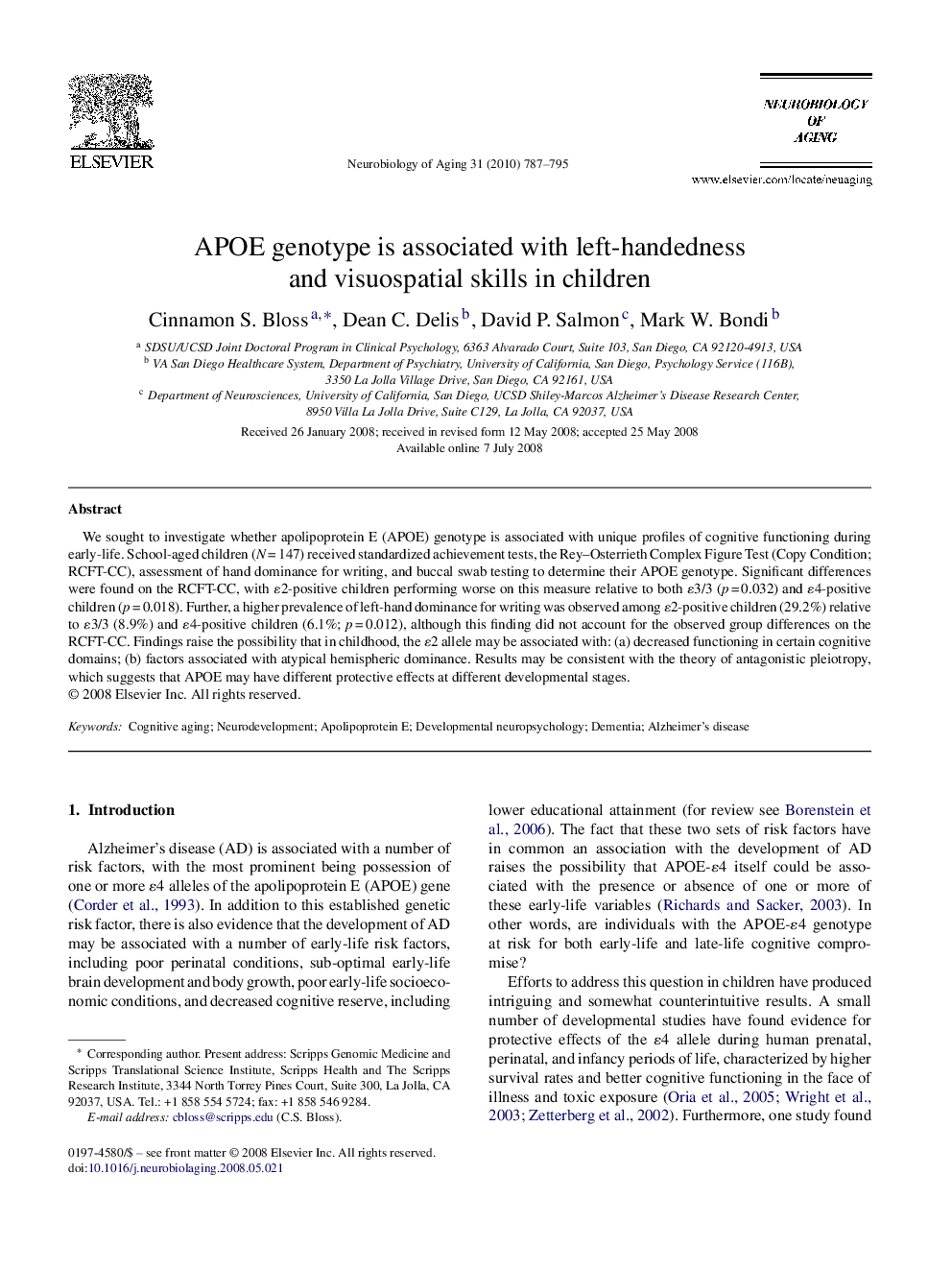| Article ID | Journal | Published Year | Pages | File Type |
|---|---|---|---|---|
| 6810785 | Neurobiology of Aging | 2010 | 9 Pages |
Abstract
We sought to investigate whether apolipoprotein E (APOE) genotype is associated with unique profiles of cognitive functioning during early-life. School-aged children (N = 147) received standardized achievement tests, the Rey-Osterrieth Complex Figure Test (Copy Condition; RCFT-CC), assessment of hand dominance for writing, and buccal swab testing to determine their APOE genotype. Significant differences were found on the RCFT-CC, with É2-positive children performing worse on this measure relative to both É3/3 (p = 0.032) and É4-positive children (p = 0.018). Further, a higher prevalence of left-hand dominance for writing was observed among É2-positive children (29.2%) relative to É3/3 (8.9%) and É4-positive children (6.1%; p = 0.012), although this finding did not account for the observed group differences on the RCFT-CC. Findings raise the possibility that in childhood, the É2 allele may be associated with: (a) decreased functioning in certain cognitive domains; (b) factors associated with atypical hemispheric dominance. Results may be consistent with the theory of antagonistic pleiotropy, which suggests that APOE may have different protective effects at different developmental stages.
Keywords
Related Topics
Life Sciences
Biochemistry, Genetics and Molecular Biology
Ageing
Authors
Cinnamon S. Bloss, Dean C. Delis, David P. Salmon, Mark W. Bondi,
